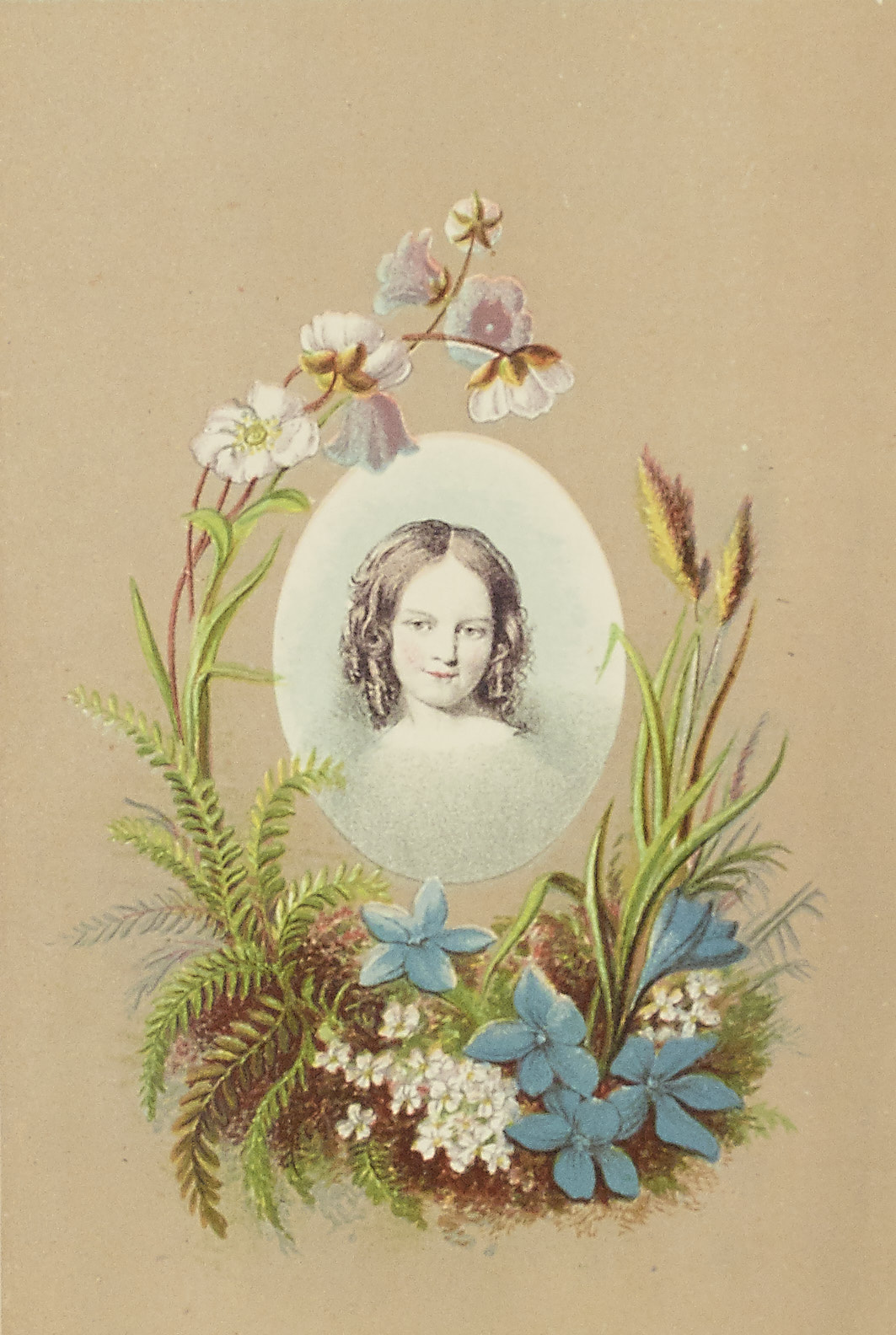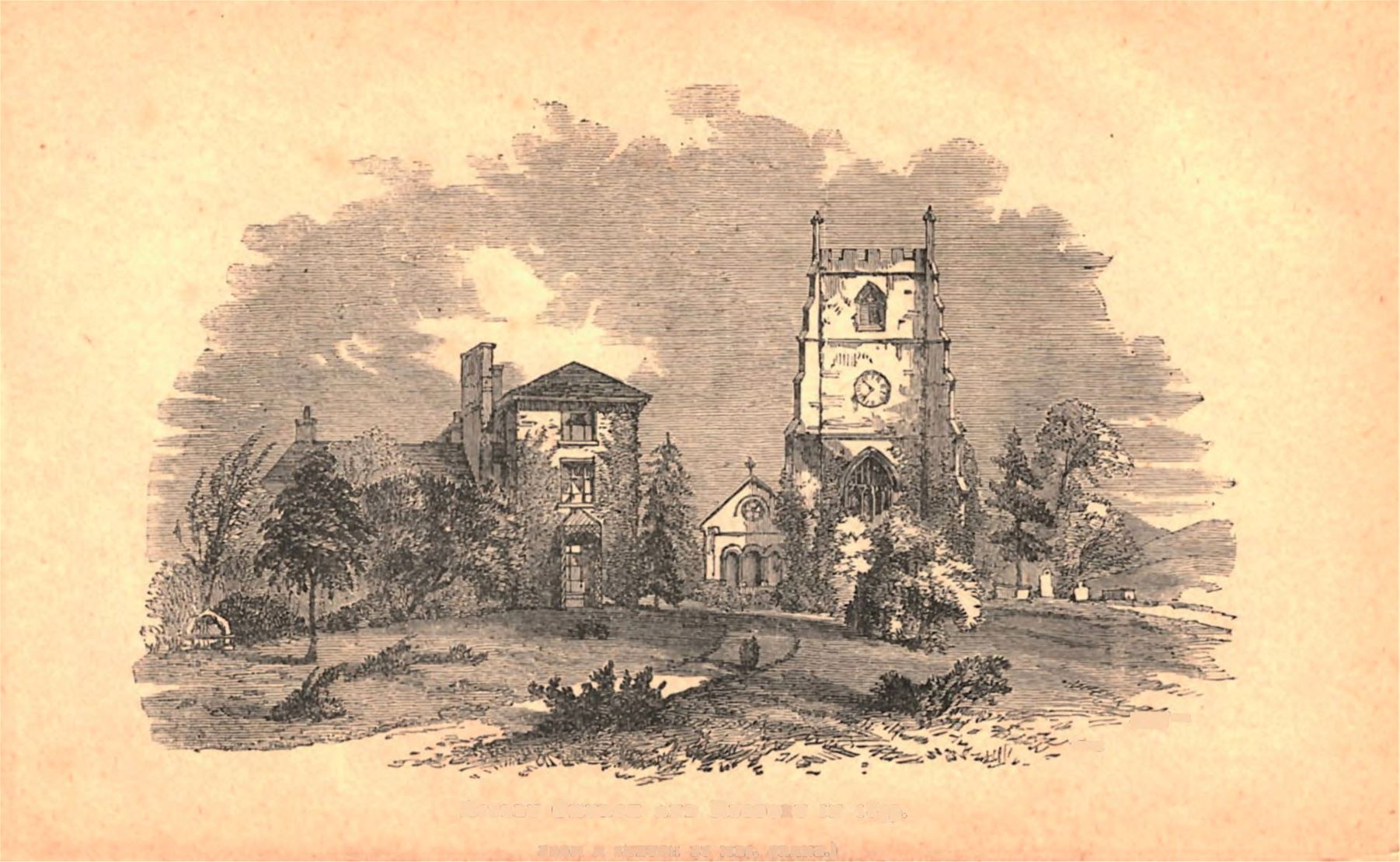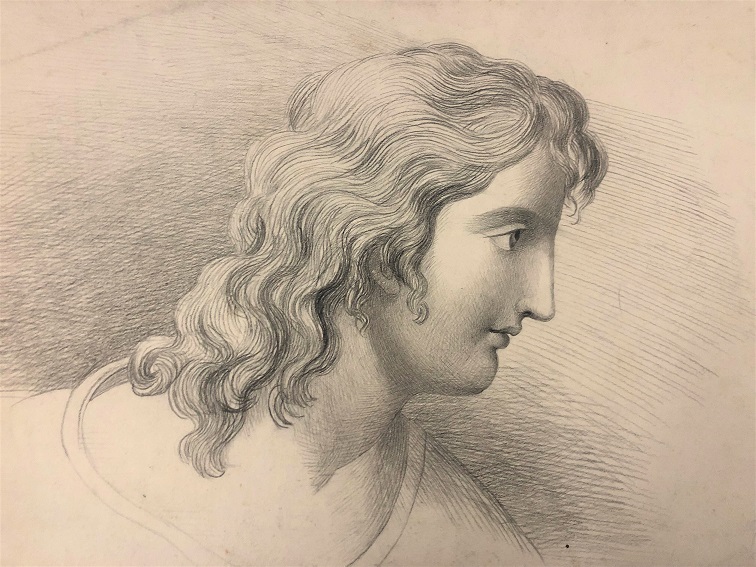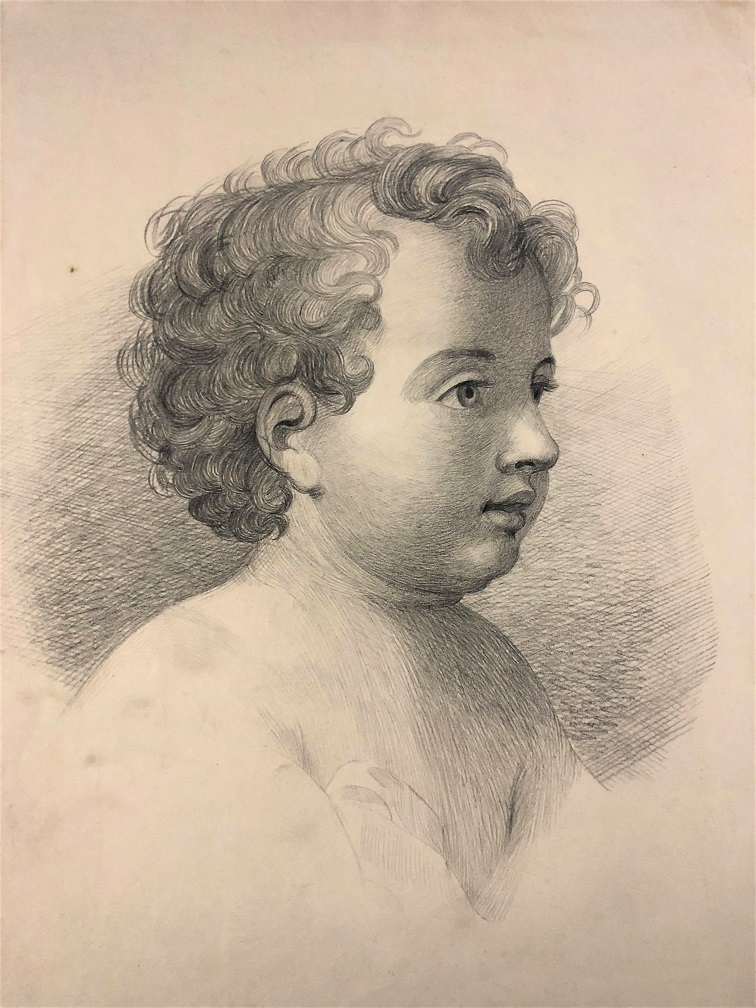A life lived in spiritual devotion: Frances Ridley Havergal, Part One
- 11th December 2023
Recently catalogued deposits of books, family sketchbooks, music, testimonials and presentation volumes, as well as biographical texts, shed light on the English religious poet and hymnwriter, and her remarkable family.
Born on 14th December 1836, Frances Ridley Havergal was raised in the Victorian English vicarage of Astley, Worcestershire. The youngest child of Reverend William Henry Havergal and Jane (Head) Havergal, she was a talented singer and piano player and composed many Christian hymns and melodies, some of which we still sing today. She also wrote religious tracts and children’s books, and though she did not claim to occupy a prominent place for herself as a poet, nevertheless fashioned one.

Frances Ridley Havergal.jpg: Frances Ridley Havergal in her ninth year, illustration by Helga von Cramm, Life Chords, 1880: Ref 899:749 BA13545/1/6
The Havergal home produced several creative Christians. Frances’ father was himself a composer and hymnwriter, her brother Henry an organist, and her sisters Ellen, Jane and Maria accomplished artists and writers. Maria even wrote her youngest sister’s biography (of sorts), Memorials of Frances Ridley Havergal – various nineteenth century copies of which we now hold. Published posthumously, in it, she traces Frances’ life from childhood up until her premature death in 1879. Interestingly, Jane then went on to publish Maria’s autobiography in 1887. She also authored Records of the Life of the Rev. W.H. Havergal, M.A., in which she recounts their father’s exemplary life. One lived in service to God, that paved the way for his children.
Of her childhood, Frances (often called Fanny) described one of ‘trees and sunshine’ – ‘a pleasant country life […] of everyday beauty’ in which Sunday hymn singing was a highlight. Various sketchbooks of impressive pencil drawings by the Havergal sisters document their beloved Astley home and its picturesque surroundings.

Engraving of Astley Church and Rectory in 1839 from a sketch by Jane Miriam Crane, Memorials of Frances Ridley Havergal, 1882: Ref L929.2 HAVE
Highly intelligent from an early age, Frances could read the Bible completely at four, and by age seven, had written her first verse. In 1845, she bid adieu to Astley – reluctantly moving with her family to the Rectory of St Nicholas in Worcester following Reverend William’s appointment there (he was later appointed honorary canon to Worcester Cathedral where Frances was confirmed in 1853). Sadly, aged only eleven, Frances’ mother died, which led her to boarding school in London and Germany. Later, she would recount the grief she felt at her mother’s passing in her book, Four Happy Days – an autobiographical work in which the character of Annie is really her.
Throughout her life, Frances was able to recite vast tracts of Scripture and mastered several languages – becoming fluent in German, French, Italian, Latin, Greek and Hebrew. As a child, Maria recalls how her sister ‘took care to always be in the drawing room while a professor gave German lessons […] listening and acquiring the language without anyone knowing’. On her sixteenth birthday Frances’ father and stepmother Caroline (Cook) gifted her a German copy of the Bible, which we also hold. This, alongside another written in Greek and English, that we are told she constantly used and kept on her study table. Hidden in a box of embroidery works and materials kept ‘just as she left them’, is also the long nib of the fountain pen Frances ‘used daily in her Bible’. Another notable find is a two-sided letter addressed to Reverend William. It forms part of a commentary on Martin Luther’s Psalms and is believed to have been purchased in a market after the redundancy of St Nicholas Church in 1989.
For Frances, her many talents were simply loans from God, only to be used in His service. Of her many works, the consecration hymn Take my life and let it be is perhaps her best known. Written on 4th February 1874, its lyrics offer a fitting summary of her life:
‘Take my life and let it be, consecrated, Lord, to Thee […]
Take my voice and let me sing always, only, for my King’
In Memorials, Frances describes the events that led to her hymn’s creation – recalling how on the last night of her five-day stay at Arely House in Worcestershire, she became ‘too happy to sleep’ and the couplets formed themselves after she’d seemingly converted all in the ten-person house to rejoicing Christ.
Frances’ devotion to God saw her take every opportunity to talk about the gospel that she could. This led her to write books, letters and leaflets that advocated for her Christian faith, as well as teach in Sunday Schools, support religious societies and lead hymn meetings. Though she was often ill, and her life cut sadly short, she delivered a remarkable body of work.
All this to be explored in Part Two.
 Study of head in pencil, Sketchbook belonging to Ellen Prestage Havergal, 1838: Ref 899:749: BA13545/7/1 |
 Study of head in pencil, Sketchbook belonging to Ellen Prestage Havergal, 1838: Ref 899:749: BA13545/7/1 |
Post a Comment